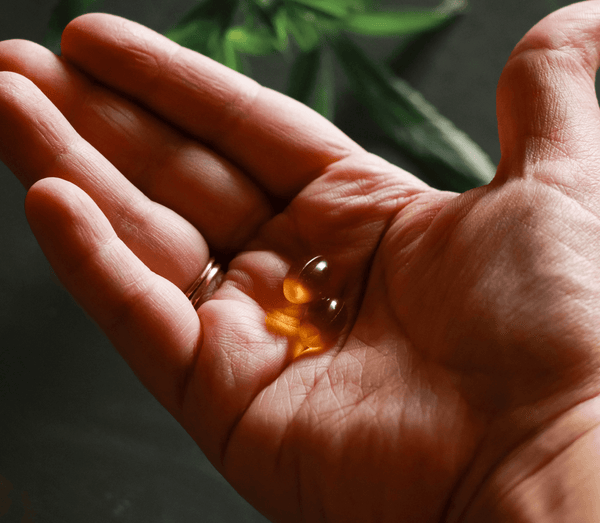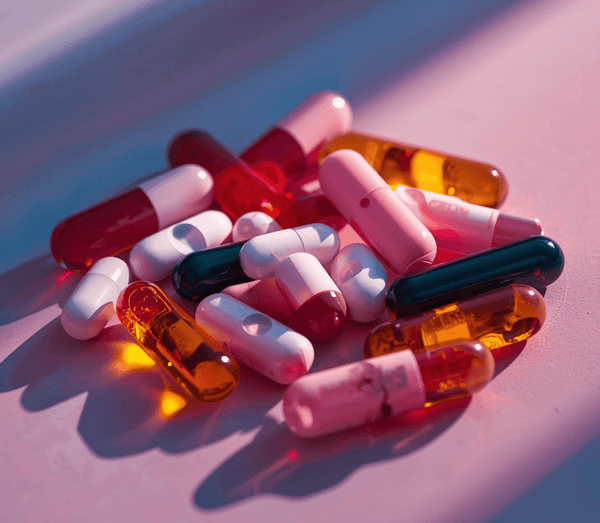For anyone navigating fertility, whether trying to conceive naturally or undergoing treatments like IVF or egg freezing, one term stands out: egg quality. Often misunderstood, egg quality is central to reproductive success. But can you improve it? And what role do nutrition, lifestyle, and supplements play in supporting healthier eggs?
In this guide, we’ll explore why egg quality matters, what affects it, and what you can do, through lifestyle changes, key nutrients, and science-backed fertility supplements, to create the best possible foundation for conception.
Why Egg Quality Is Crucial for Fertility
Unlike sperm, which regenerate every few months, a woman is born with all the eggs she will ever have. Over time, these eggs age. By her mid-30s, not only does the number of eggs decline, but so does their quality, their ability to mature properly, fertilise, and lead to a healthy embryo1.
High-quality eggs are more likely to result in successful pregnancies, while poor-quality eggs are linked with failed implantation, miscarriage, and chromosomal abnormalities. For those undergoing assisted reproduction, poor egg quality can reduce fertilisation rates and embryo viability, making fertility treatment more challenging2.
What Affects Egg Quality?
Age remains the most well-established factor. By 35, the average woman begins to experience a measurable decline in both the quantity and quality of her eggs. But age isn’t the only factor. Egg quality is also influenced by:
- Oxidative stress – An imbalance between free radicals and antioxidants that damages cellular structures, including DNA and mitochondria in egg cells3.
- Hormonal imbalance – Irregular hormone signals can disrupt the egg maturation cycle.
- Inflammation – Chronic inflammation can affect ovulation and egg development.
- Environmental exposures – Everyday toxins like BPA, pesticides and phthalates can negatively impact reproductive health4.
- Diet and nutrient deficiencies – A lack of essential vitamins, minerals, and healthy fats impairs cellular function.
Understanding these influences shows why nutrition and lifestyle, areas within your control, are such powerful tools in improving egg quality.
Nutrition and Nutrients That Matter
To optimise egg health, the body needs a steady supply of specific nutrients that protect cells, support hormone production, and power mitochondria, the energy centres of the cell. These are some of the most important:
CoQ10 is one of the most studied nutrients for egg health. Found in every cell, it fuels mitochondrial function, which is critical for egg maturation and fertilisation. Research shows CoQ10 levels decline with age, but supplementation may improve egg competence, especially in women over 355.
Inositol, particularly myo-inositol, supports insulin sensitivity and ovarian function, particularly in women with PCOS. It has been shown to improve ovulatory function and increase egg quality6.
Folate is essential for DNA synthesis. During egg development, folate ensures proper cell division and genetic stability. Supplementing with methylated folate rather than synthetic folic acid is especially beneficial for women with MTHFR gene variants7.
Vitamin D has emerged as a key fertility nutrient. It regulates genes involved in hormone production and ovulation. Low levels are common, especially in the UK climate, and have been associated with poorer IVF outcomes8.
Omega-3 fatty acids (DHA and EPA) help reduce inflammation and are vital for egg membrane integrity. They also promote blood flow to reproductive organs, improving the environment in which eggs mature9.
Antioxidants such as vitamins C and E, zinc, and NAC (N-acetyl cysteine) help combat oxidative stress, which can impair egg quality at a cellular level.
Why Lifestyle Still Matters
While supplements support biological pathways, they’re most effective when combined with lifestyle changes that reduce the burden on your reproductive system. Here’s what to focus on:
1. Diet – A Mediterranean-style diet high in colourful vegetables, oily fish, legumes, and healthy fats (like olive oil and avocados) supports antioxidant intake, blood sugar stability, and hormone production. Avoid trans fats and limit processed foods. Learn more about diet and fertility here.
2. Exercise – Moderate, regular movement improves blood flow and insulin sensitivity. Over-exercising, however, can reduce fertility hormones, so aim for balance.
3. Sleep – Poor sleep disrupts hormone rhythms, particularly melatonin, which is involved in egg maturation. Aim for 7–9 hours nightly.
4. Stress Management – Cortisol competes with sex hormones and can interfere with ovulation. Mindfulness, CBT, yoga and acupuncture are all effective tools for reducing stress levels naturally.
5. Environmental Clean-Up – Choose BPA-free bottles, avoid microwaving plastic, and use natural cleaning products to limit exposure to endocrine-disrupting chemicals. Learn more about EDCs (endocrine disrupting chemicals) here.
The Ultimate Egg Health Pack: A Comprehensive Fertility Protocol
Many women struggle to piece together a fertility supplement regime. That’s why we created the Ultimate Egg Health Pack — a research-informed, all-in-one protocol combining essential nutrients in clinical-grade doses. It’s ideal for women preparing for IVF, egg freezing, or proactively supporting egg health at any stage.
This pack includes:
- Vitafem – Comprehensive fertility multivitamin and mineral formula.
- Vitafem Boost – Additional antioxidant and nutrient support for egg development.
- Vital DHA – Omega-3 support for cell health and hormone regulation.
- Vitamin D Oral Spray – High-absorption form to support reproductive hormone function.
- Femceive – A fertility-focused probiotic supporting gut and vaginal microbiome balance.
- Psyllium Husk – A gentle fibre to support digestive health.
- Inositol & Folate – For supporting hormonal balance, ovulation and egg cell division.
- Kaneka CoQ10 – Highly bioavailable CoQ10 for mitochondrial and cellular energy.
Taken daily for at least three months, this pack offers the nutritional foundations to give your body the best chance of producing healthy, high-quality eggs.
FAQs About Egg Quality Supplements
Can you really improve egg quality with supplements?
While supplements can’t reverse age-related decline, they can support mitochondrial function, hormone balance and cellular protection — all critical for healthy eggs5.
How long should I take supplements before IVF?
Ideally start three months before IVF or egg retrieval. This aligns with the egg maturation cycle and maximises nutritional support.
Are egg quality supplements safe to take with other medications?
Most fertility supplements are safe, but always consult your GP or fertility specialist before starting a new supplement routine, especially if you’re on prescription medication.
What are the signs of poor egg quality?
There are no visible symptoms, but low AMH levels, poor embryo development in IVF, or multiple unsuccessful cycles may be indicators. A fertility clinic can run tests to assess.
References
- Broekmans FJ, et al. Ovarian aging: mechanisms and clinical consequences. Endocrine Reviews, 2009
- Wallace WH, Kelsey TW. Human ovarian reserve from conception to the menopause. PLoS ONE, 2010
- Agarwal A, Gupta S, Sharma R. Role of oxidative stress in female reproduction. Reproductive Biology and Endocrinology, 2005
- Diamanti-Kandarakis E, et al. Endocrine-disrupting chemicals: an Endocrine Society scientific statement. Endocrine Reviews, 2009
- Bentov Y, Casper RF. The aging oocyte: can mitochondrial function be improved? Fertility and Sterility, 2013
- Genazzani AD, et al. Myo-inositol administration positively affects hyperinsulinemia and hormonal parameters in overweight patients with polycystic ovary syndrome. Gynecological Endocrinology, 2008.
- Czeizel AE, et al. The primary prevention of birth defects: Multivitamins or folic acid? International Journal of Medical Sciences, 2004.
- Pavone ME, et al. Vitamin D and reproductive health. Obstetrical & Gynecological Survey, 2017.
- Jungheim ES, et al. Associations between free fatty acids, cumulus oocyte complex morphology and ovarian function during in vitro fertilization. Fertility and Sterility, 2011.



